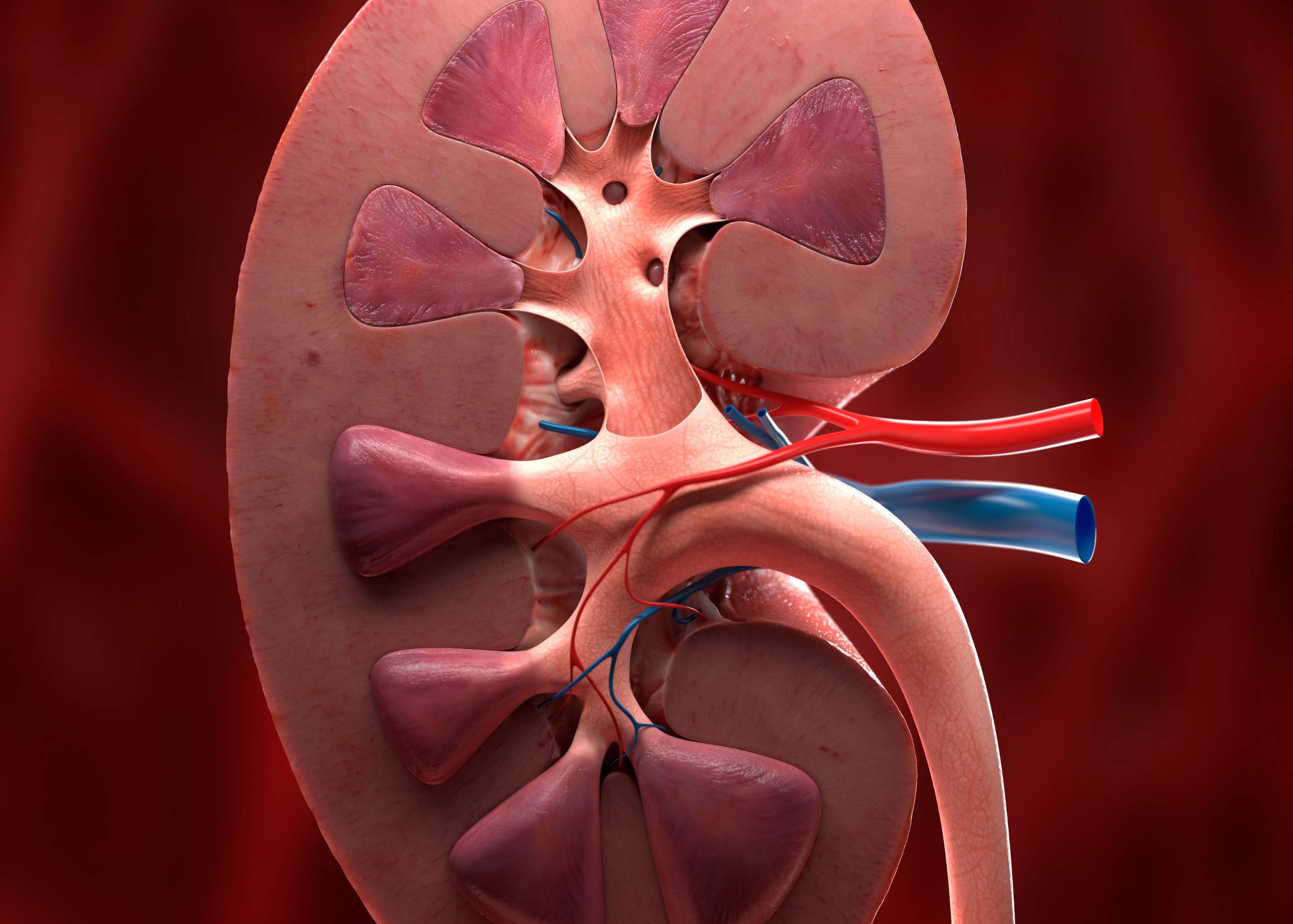Kidney cancer is a disease in which malignant (cancer) cells form in the tissues of the kidney. The majority of cases are non-metastatic, meaning they cannot spread to other parts of the body. However, metastatic kidney cancer can develop into a more dangerous form called renal carcinoma.
Symptoms of Kidney Cancer
Symptoms may include:
- Blood in the urine that is pink or red
- Pain or a lump in the lower back, abdomen, or groin
- Fatigue
- Fevers
- Weight loss
- A urine test showing protein levels that are high or low
Causes and Risk Factors of Kidney Cancer
The cause of kidney cancer isn’t known. Still, researchers think it’s related to a combination of factors, including age, family history, genetics, and environmental factors like exposure to certain chemicals or radiation. It is often diagnosed at an advanced stage because it usually does not cause noticeable symptoms until it has spread to other parts of the body.
Several risk factors increase your likelihood of developing kidney cancer. These include,
Age: People older than 50 years old have a higher risk of getting kidney cancer than younger adults.
Gender: Men are more likely to develop this type of cancer than women.
Diagnosis
A diagnosis of kidney cancer requires a biopsy (the removal of a small amount of tissue for examination under a microscope). This can be done with needle aspiration (sample collected by inserting a needle into the kidney), open surgery, or laparoscopic surgery.
When a doctor suspects that you have the condition, they will perform a physical examination and may order blood tests to check for signs of inflammation or infection in your kidneys. If there are no signs of these complications, you may then undergo imaging tests such as CT scans or MRIs.
These tests provide detailed images of your kidneys, bladder, and other organs. Once your doctor has reviewed all available information about your symptoms and medical history, along with any imaging results, they will determine whether or not you require further treatment, such as chemotherapy or radiation therapy.
Treatment
The condition may be treated by surgery, chemotherapy, radiation therapy, or immunotherapy (where the immune system is used to fight cancer). Some patients may receive a combination of these treatments. Surgery may involve removing part or all of the kidney or an entire lobe (half) of one or both kidneys. Chemotherapy uses drugs to kill cancer cells or stop them from growing and dividing. Radiation therapy uses high-energy beams from machines outside the body to destroy tumors in or near the kidneys. Immunotherapy uses medications that help stimulate your immune system so it can fight off cancer cells more effectively than usual.
Burjeel Medical City Abu Dhabi provides the most advanced treatments available for your condition. Our team of leading experts, including nephrologists, surgeons, pathologists, oncologists, and radiologists, have years of experience treating kidney cancer and have helped many patients achieve positive outcomes.






























